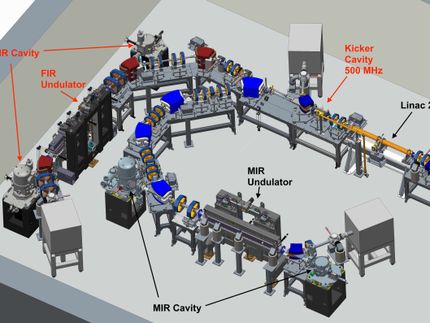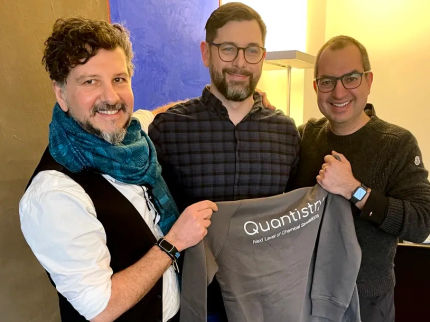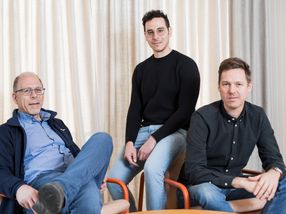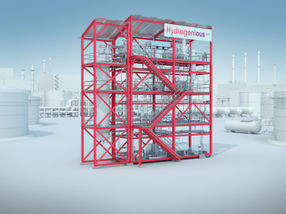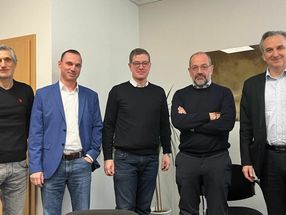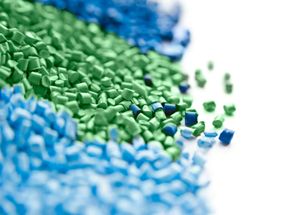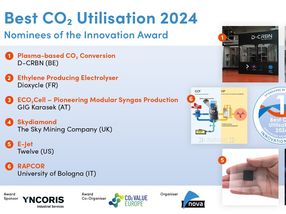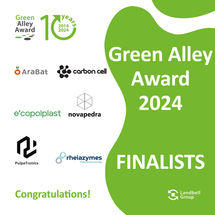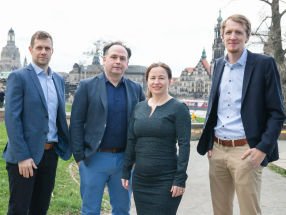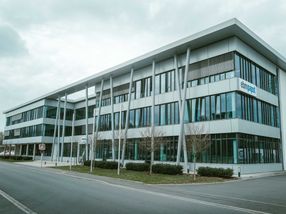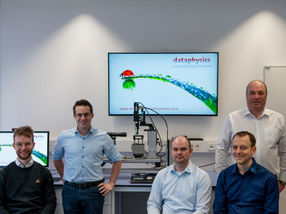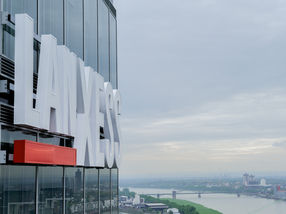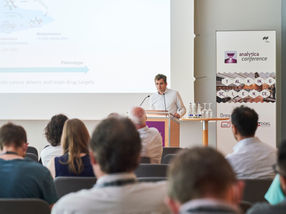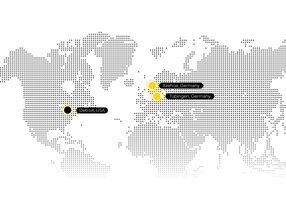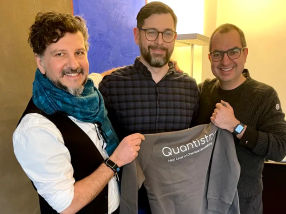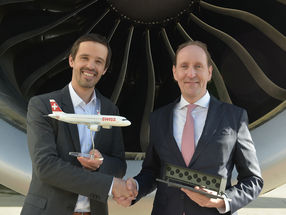European Space Agency and Merck Expand Cooperation
Merck and the European Space Agency (ESA) signed a Letter of Intent to extend by a further two years their cooperation agreement from 2016. The two partners will continue to cooperate intensively in the fields of innovation, digitalization and materials research. With respect to innovation, the focus will be on the fields of Biosensing and Biointerfaces, Clean Meat and Liquid Biopsy technologies.
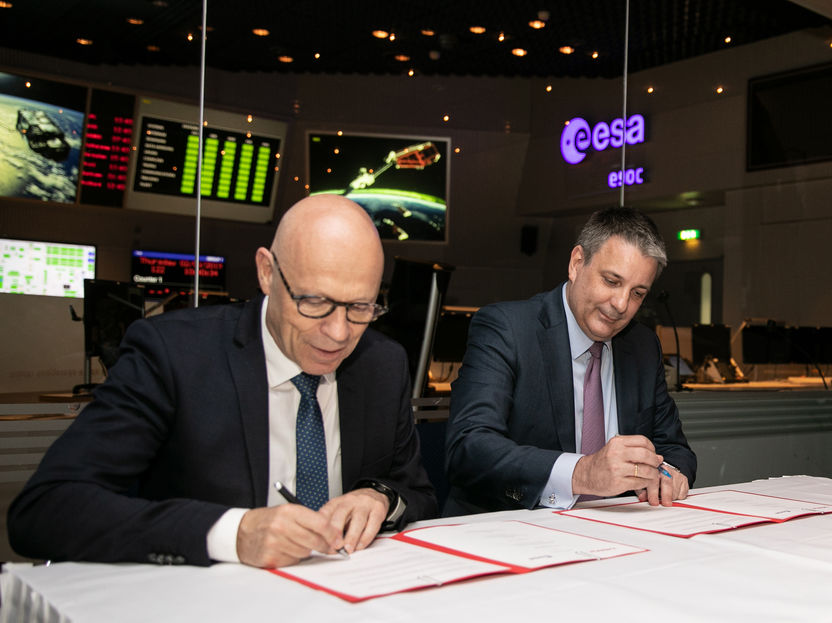
Rolf Densing and Kai Beckmann
Merck KGaA
“It is our goal to continue and intensify the exchange between ESA and Merck in a targeted manner,” said Kai Beckmann, CEO Performance Materials and member of the Executive Board of Merck. “Scientific progress is the key to improving the lives of millions of people. Partnerships, such as this one with ESA, help to accelerate this progress and thus to achieve objectives faster.”
“The profile and strategic interests of both organizations complement each other superbly,” said Rolf Densing, Director of Operations and Head of the European Space Operations Center (ESOC) at ESA. “This allows both partners to openly share and make use of synergies in terms of competences, methods and tools.”
Merck and ESA began cooperating in 2011 and had most recently extended their partnership in 2016. The focus of the agreement signed today is on the following topics:
Innovation: Future projects will be derived from the threestrategic innovation fields of the Merck Innovation Center (Biosensing and Biointerfaces, Clean Meat and Liquid Biopsy technologies). The aim is to make contributions that will further the development of human space exploration.
Moreover, both partners will further share their experience and competence in the area of innovation processes, for instance, in stimulating innovation in both organizations in the context of the Merck Innovation Center or via the newly established managerial position of Innovation Officer on the ESA side.
The topic of Biosensing and Biointerfaces focuses mainly on the interface between biology and digitalization. By applying data analysis tools, faster and more precise (remote) monitoring and treatment will be enabled in numerous disease areas. The focus of Clean Meat is on the biotechnology required to produce genuine meat grown in vitro. The third innovation field targets technological solutions to overcome unresolved challenges in the liquid biopsy workflow to detect diseases sooner and more readily.
Digitalization: Digitalization offers significant potential for ESA and Merck. Both organizations therefore aim to continue the exchange between their scientists and engineers on new and innovative technologies such as automation and autonomy concepts, artificial intelligence, cloud computing, simulation, and Big Data, and virtual reality methods for laboratory and exploration activities on both sides.
Materials Research: The development of new, high-performance materials is a core activity of ESA and Merck. Potential collaboration fields include liquid crystal technologies, coatings, and semiconductors.
Beyond the specific development of innovations, an intensive dialogue on future topics is also part of the collaboration. For example, in recent years, a series of events and activities have taken place. These include a co-hosted hackathon as well as a presentation by German ESA astronaut Thomas Reiter for selected scientists at Merck in Darmstadt. At the Innovation and Leadership in Aerospace Conference in 2018 in Berlin, Kai Beckmann and Rolf Densing were members of a panel discussion entitled “Space meets Non-Space”. As the only non-space industry partner, Merck participated for the second time in a cross-industry challenge at ESA’s second Space Exploration Masters last year. The topic of the winning team was use of bioreactors in space to solve the problem of having an autonomous food and oxygen supply at a lunar base.
Other news from the department business & finance
Most read news
More news from our other portals
See the theme worlds for related content
Topic world Sensor technology
Sensor technology has revolutionized the chemical industry by providing accurate, timely and reliable data across a wide range of processes. From monitoring critical parameters in production lines to early detection of potential malfunctions or hazards, sensors are the silent sentinels that ensure quality, efficiency and safety.
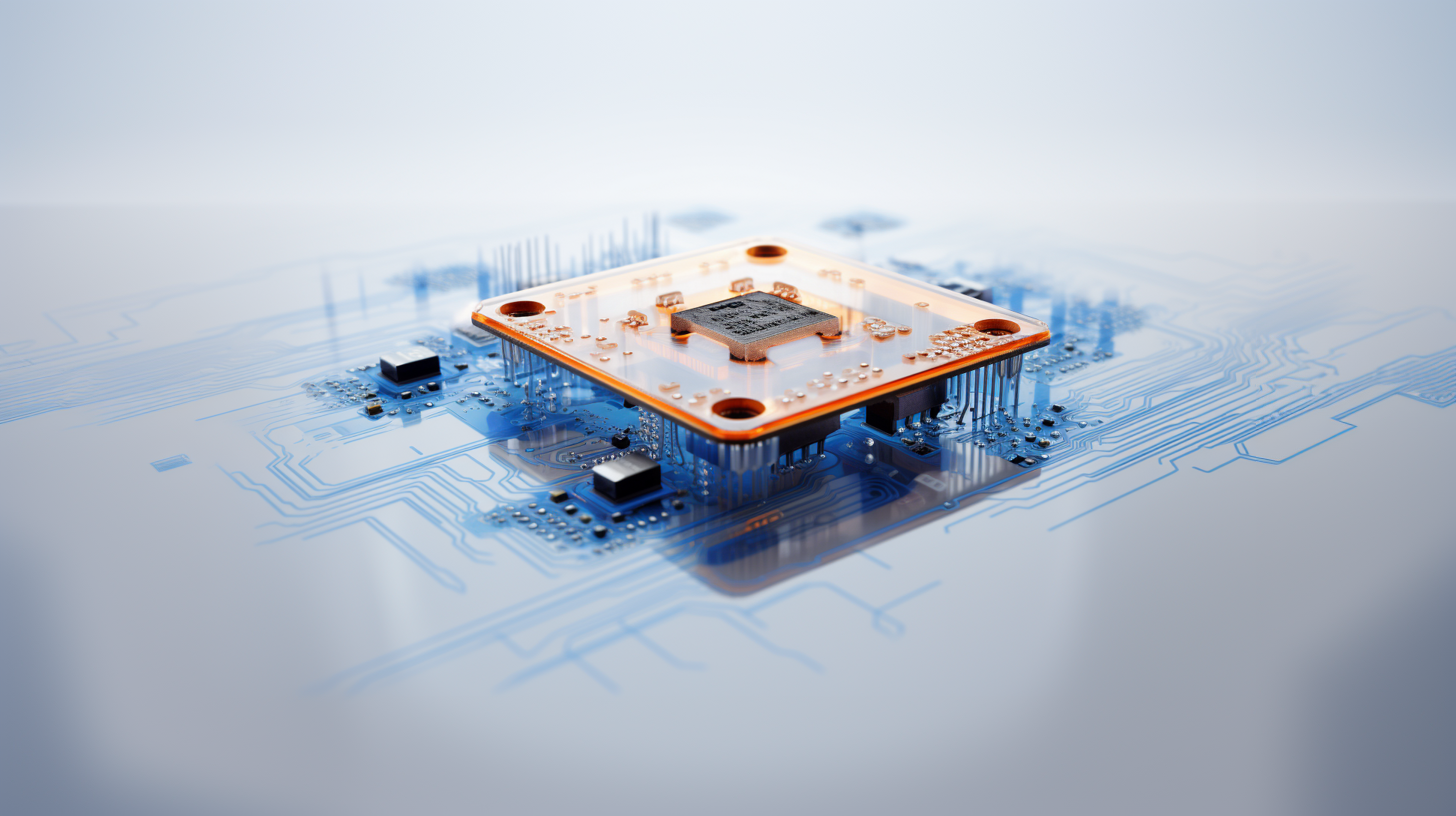
Topic world Sensor technology
Sensor technology has revolutionized the chemical industry by providing accurate, timely and reliable data across a wide range of processes. From monitoring critical parameters in production lines to early detection of potential malfunctions or hazards, sensors are the silent sentinels that ensure quality, efficiency and safety.
